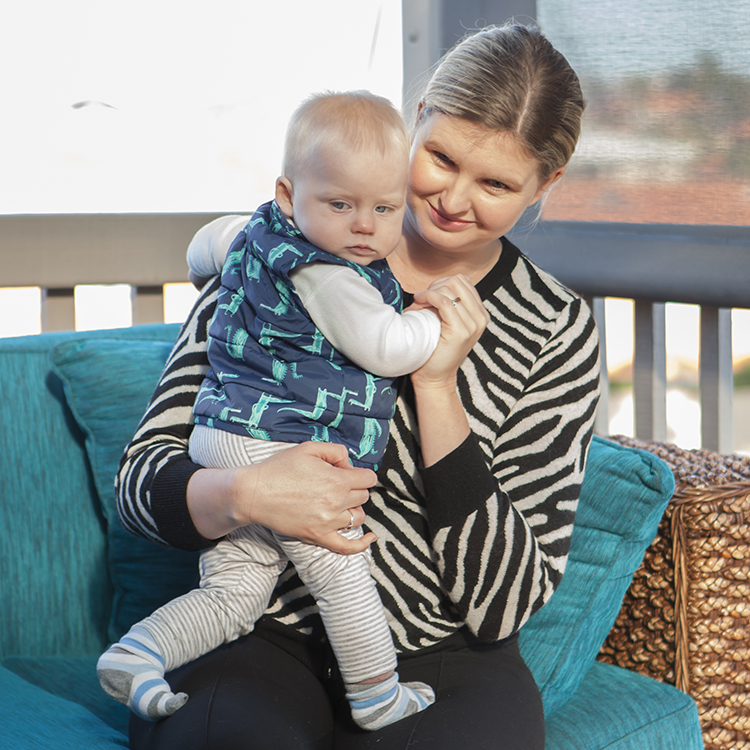Search
Research
Clustering of psychosocial symptoms in overweight childrenThe aims of the present study were to (i) examine the relationship between children's degree of adiposity and psychosocial functioning; and (ii) compare patterns of clustering of psychosocial measures between healthy weight and overweight/obese children.

Epigenomic research at The Kids explores the links between childhood disease and the molecular hallmarks of epigenetic control.
Research
Review of the quality of evidence for preschool and school-based programs to support social and emotional skills, perseverance and academic self-conceptThis project provides guidance to help school leaders review the evidence for different programs, as well as a review of universal, evidence-based pre-school and school-based social and emotional learning programs available in Australia.
Research
The ARC Centre of Excellence for Children and Families over the Life Course (Life Course Centre or LCC)The Life Course Centre is a national centre funded by the Australian Research Council Centre of Excellence Scheme and hosted through the University of Queensland with collaborating nodes at the University of Western Australia, Sydney University and University of Melbourne.
Research
A peer support intervention for first-time mothers: Feasibility and preliminary efficacy of the mummy buddy programThe transition to motherhood, although joyous, can be highly stressful, and the availability of professional postpartum support for mothers is often limited. Peer volunteer support programs may offer a viable and cost-effective method to provide community-based support for new mothers. The aim of this study is to determine the feasibility of a peer volunteer support program-The Mummy Buddy Program-in which experienced volunteer mothers are paired with, and trained to offer social support to, first-time mothers.
Research
Identifying young adults at high risk of cardiometabolic disease using cluster analysis and the Framingham 30-yr risk scoreCurrent strategies to reduce cardiovascular disease (CVD) risk in young adults are largely limited to those at extremes of risk. In cohort studies we have shown cluster analysis identified a large sub-group of adolescents with multiple risk factors.
Research
Whole-cell pertussis vaccine in early infancy for the prevention of allergy in childrenAtopic diseases are the most common chronic conditions of childhood. The apparent rise in food anaphylaxis in young children over the past three decades is of particular concern, owing to the lack of proven prevention strategies other than the timely introduction of peanut and egg.
Research
Study protocol for Healthy Conversations @ Playgroup: a multi-site cluster randomized controlled trial of an intervention to promote healthy lifestyle behaviours in young children attending community playgroupsEarly childhood is a critical window for preventing obesity and chronic disease. Yet, 1 in 4 Australian children aged 5 years and under are affected by overweight or obesity; and significant proportions of children under 5 years fail to meet guidelines for diet quality, physical activity (PA), screen time, and sleep.
Research
Findings from the Kids in Communities Study (KiCS): A mixed methods study examining community-level influences on early childhood developmentThere is increasing international interest in place-based approaches to improve early childhood development (ECD) outcomes. The available data and evidence are limited and precludes well informed policy and practice change. Developing the evidence-base for community-level effects on ECD is one way to facilitate more informed and targeted community action.
Research
Kindy Moves: a protocol for establishing the feasibility of an activity-based intervention on goal attainment and motor capacity delivered within an interdisciplinary framework for preschool aged children with cerebral palsyPreschool aged children with cerebral palsy (CP) and like conditions are at risk of performing below their peers in key skill areas of school readiness. Kindy Moves was developed to support school readiness in preschool aged children with CP and like conditions that are dependent on physical assistance and equipment throughout the day. The primary aims are to determine the feasibility of motor-based interventions that are functional and goal directed, adequately dosed and embedded into a play environment with interdisciplinary support to optimise goal-driven outcomes.
